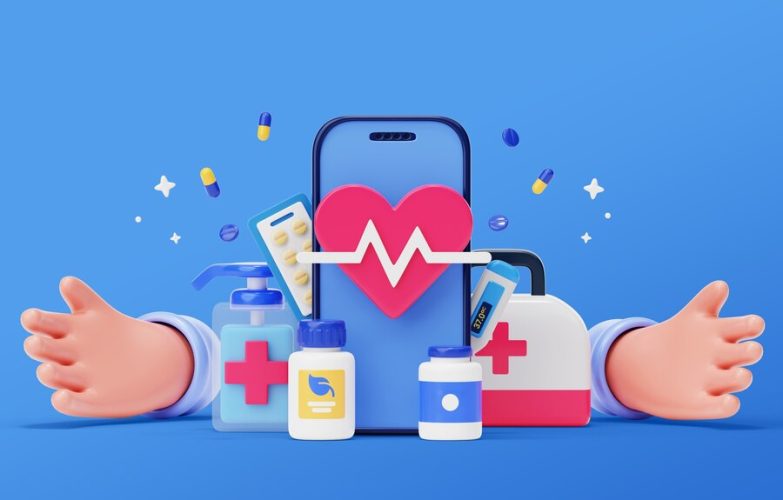The Importance of Healthcare: Ensuring a Healthier Future for All

Categories :
Healthcare is one of the most vital aspects of human life. Ensuring individuals receive proper medical attention and treatment to maintain their well-being. Access to quality healthcare services can significantly improve the quality of life. By increase life expectancy, and reduce the burden of diseases. As people seek entertainment and relaxation through activities like playing at slotsgem casino. They must also rank their health by making informed choices. And seeking timely medical care.
Understanding Healthcare and Its Importance
Healthcare encompasses a broad range of services aimed at maintaining, improving, and restoring health. These services include preventive care, treatment of illnesses, emergency care, and long-term rehabilitation. The primary goal of healthcare systems is to ensure that individuals receive timely medical attention. to prevent serious health complications.
Access to healthcare services is essential for several reasons:
Disease Prevention: Regular check-ups, vaccinations, and screenings help prevent diseases before they become severe.
Early Detection and Treatment: Prompt diagnosis and medical intervention can save lives. And reduce healthcare costs in the long run.
Quality of Life Improvement: Healthcare services help manage chronic conditions. Ensuring individuals can lead healthy and productive lives.
Increased Life Expectancy: Better healthcare facilities contribute to longer, healthier lives for people around the world.
Types of Healthcare ServicesHealthcare can be categorized into different types. Each serving a unique role in maintaining public health:
1. Primary Healthcare
Primary healthcare serves as the first point of contact. Between patients and the medical system. It includes:
- Routine check-ups and screenings
- Vaccinations and immunizations
- Health education and awareness programs
- Basic treatments for common illnesses
Primary healthcare providers, such as family doctors and general practitioners,. Play a crucial role in ensuring early detection and prevention of diseases.
2. Secondary Healthcare
Secondary healthcare involves specialized medical care provided. By specialists such as cardiologists, dermatologists, and orthopedic surgeons. Patients are usually referred to secondary healthcare facilities. When primary healthcare providers determine that further medical intervention is needed.
3. Tertiary Healthcare
Tertiary healthcare includes advanced medical care and surgeries provided in specialized hospitals. Examples of tertiary healthcare services include:
- Cancer treatment centers
- Organ transplants
- Neurosurgery
Tertiary healthcare facilities are equipped with state-of-the-art technology. And expert medical professionals to handle complex medical cases.
4. Emergency and Urgent Care
Emergency care is essential for handling life-threatening situations. Such as heart attacks, strokes, severe injuries, and accidents. Quick access to emergency medical services (EMS) can mean the difference between life and death.
Urgent care centers, , handle non-life-threatening emergencies. Such as minor fractures, infections, and allergic reactions. They provide faster treatment options than hospital emergency rooms for less critical conditions.
Challenges in Healthcare Systems
While healthcare systems have made significant advancements, challenges still exist. Some of the common challenges include:
High Medical Costs: Many individuals struggle to afford medical care, especially in countries without universal healthcare.
Limited Access to Healthcare Services: Rural and underserved communities often lack proper medical facilities and trained healthcare professionals.
Shortage of Healthcare Workers: The demand for doctors, nurses, and other healthcare workers continues to rise. Leading to workforce shortages in many regions.
Health Inequalities: Socioeconomic factors can affect access to healthcare, leaving marginalized populations at a disadvantage.
Emerging Diseases and Pandemics: The COVID-19 pandemic highlighted the need for strong healthcare systems. To handle global health crises effectively.
The Role of Technology in Healthcare
Technology has transformed the healthcare industry, improving patient care and increasing efficiency. Some technological advancements in healthcare include:
Telemedicine: Patients can consult doctors remotely, making healthcare more accessible, especially in rural areas.
Electronic Health Records (EHRs): Digital records help healthcare providers track patient history and provide accurate diagnoses.
Artificial Intelligence (AI): AI-powered tools assist in diagnosing diseases, predicting patient outcomes, and streamlining administrative tasks.
Wearable Health Devices: Smartwatches and fitness trackers check heart rate, physical activity, and other health metrics.
Robotic Surgery: Robotics enhance precision in surgical procedures, reducing recovery times and improving patient outcomes.
How to Maintain Good Health
While medical advancements continue to improve healthcare. Individuals can also take proactive steps to maintain their health. Here are some essential health tips:
Eat a Balanced Diet: Consuming a diet rich in fruits, vegetables, lean proteins. And whole grains helps maintain health.
Exercise Regularly: Physical activity boosts immunity, strengthens the heart. And reduces the risk of chronic diseases.
Stay Hydrated: Drinking plenty of water supports bodily functions and prevents dehydration.
Get Regular Check-ups: Routine medical exams help detect health issues early and ensure timely treatment.
Manage Stress: Practicing relaxation techniques such as meditation and deep breathing can reduce stress levels.
Avoid Harmful Habits: Limiting alcohol intake and avoiding smoking can prevent various health complications.
Citiesabc was created by a team of global industry leaders, academics and experts to create new solutions, resources, rankings and connections for the world’s top cities and populations.










